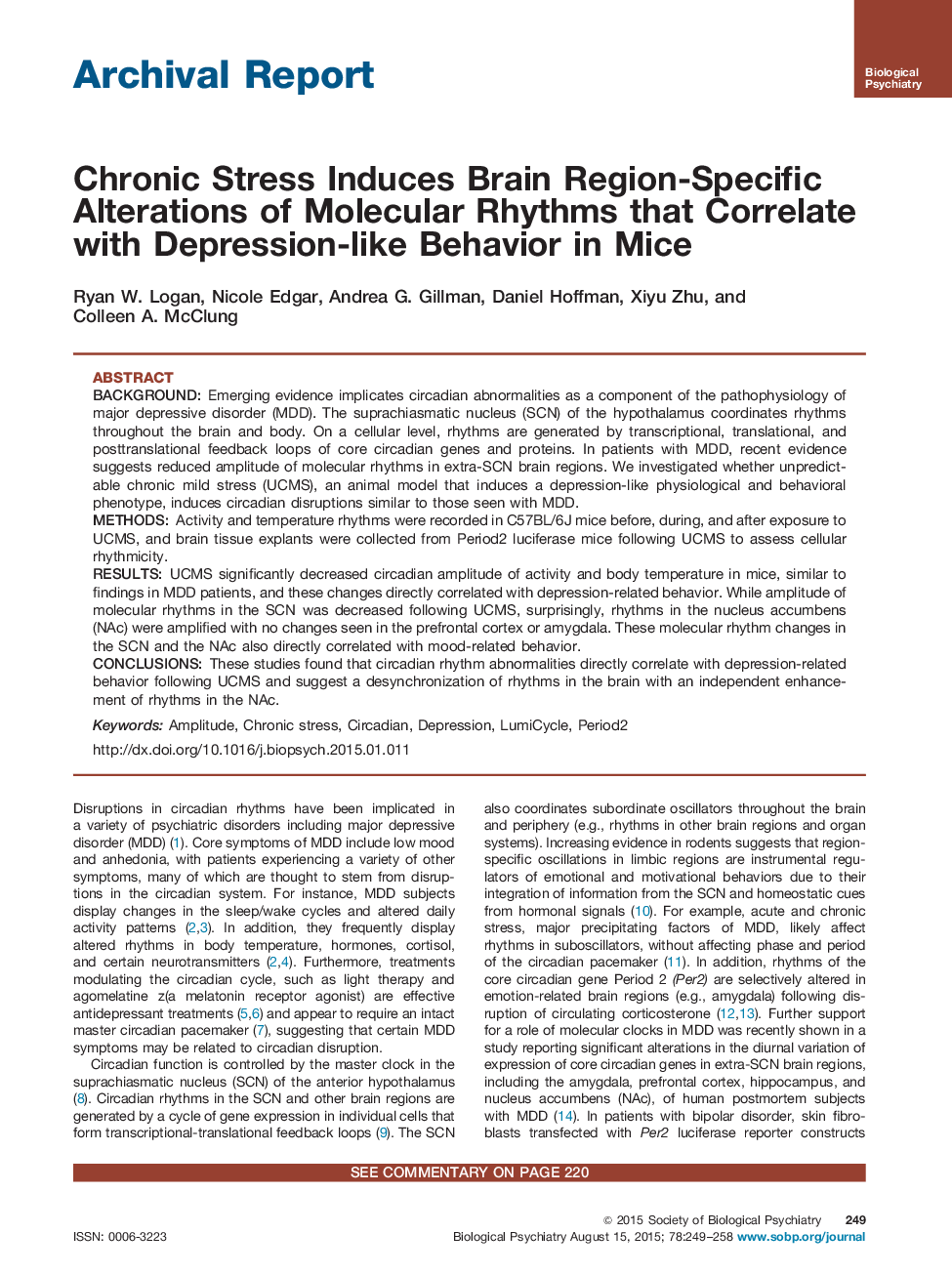| کد مقاله | کد نشریه | سال انتشار | مقاله انگلیسی | نسخه تمام متن |
|---|---|---|---|---|
| 6226730 | 1276401 | 2015 | 10 صفحه PDF | دانلود رایگان |
BackgroundEmerging evidence implicates circadian abnormalities as a component of the pathophysiology of major depressive disorder (MDD). The suprachiasmatic nucleus (SCN) of the hypothalamus coordinates rhythms throughout the brain and body. On a cellular level, rhythms are generated by transcriptional, translational, and posttranslational feedback loops of core circadian genes and proteins. In patients with MDD, recent evidence suggests reduced amplitude of molecular rhythms in extra-SCN brain regions. We investigated whether unpredictable chronic mild stress (UCMS), an animal model that induces a depression-like physiological and behavioral phenotype, induces circadian disruptions similar to those seen with MDD.MethodsActivity and temperature rhythms were recorded in C57BL/6J mice before, during, and after exposure to UCMS, and brain tissue explants were collected from Period2 luciferase mice following UCMS to assess cellular rhythmicity.ResultsUCMS significantly decreased circadian amplitude of activity and body temperature in mice, similar to findings in MDD patients, and these changes directly correlated with depression-related behavior. While amplitude of molecular rhythms in the SCN was decreased following UCMS, surprisingly, rhythms in the nucleus accumbens (NAc) were amplified with no changes seen in the prefrontal cortex or amygdala. These molecular rhythm changes in the SCN and the NAc also directly correlated with mood-related behavior.ConclusionsThese studies found that circadian rhythm abnormalities directly correlate with depression-related behavior following UCMS and suggest a desynchronization of rhythms in the brain with an independent enhancement of rhythms in the NAc.
Journal: Biological Psychiatry - Volume 78, Issue 4, 15 August 2015, Pages 249-258
